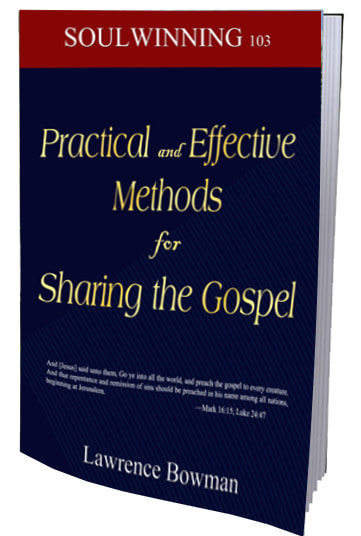
SURRENDER—according to the Noah Webster 1828 Dictionary—means to give in; to relinquish; to give up; to resign; to submit; to yield. This is what the dictionary paints as the picture of surrender. Normally, the word is seen in a negative context. For example, people in the criminal justice system have to “surrender in the name of the law” when they are in trouble. Or, in wars, one side surrenders to another. Surrender is a sign one has given up any hope for victory. Hence, to surrender is to yield or give up something to the authority or power of another, such as rights.
I have shown in the earlier chapters that we need to separate ourselves for the Lord so that we may live in a spirit of prayer. The next attribute a determined Christian needs to take upon himself is to be resolute in a spirit of surrender to God. Surrender, meaning to forsake sin and yield ourselves to Christ’s righteousness.
Romans 6:16 asks a good question: “Know ye not, that to whom ye yield yourselves servants to obey, his servants ye are to whom ye obey; whether of sin unto death, or of obedience unto righteousness?” You and I are able to yield ourselves as servants for righteousness because of the love of Christ which is abundantly bestowed upon us. The scripture explains: “For the love of Christ constraineth us”; because Christ died for all, that we who live should not henceforth live for ourselves, but for Him who died and rose again for us (2 Corinthians 5:14-15). We know how to surrender and submit to God because we have this example: “To wit, that God was in Christ, reconciling the world unto himself” (2 Corinthians 5:19). God has given to us who are in Christ Jesus the ministry of reconciliation; also, God has committed to us the word of reconciliation. Hence, we are ambassadors for Christ, as though God did beseech people by us (2 Corinthians 5:18-20).
The scriptures make this clear, saying, “If any man be in Christ, he is a new creature: old things are passed away; behold, all things are become new” (2 Corinthians 5:17). Therefore, we should walk in newness of life; and this can only come by total surrender to God: a complete yielding of our wants, desires, hopes, aspirations, and all to God. You will never walk as Christ walked until you yield and submit your all to God.
The day of your salvation was the beginning of your involvement in the glorious victory over the enemy. You chose to abandon the enemy’s side and enlisted yourself as one of God’s soldiers. Therefore, what kind of soldier are you choosing to be?
You will never launch into the deep with God or understand the precious concerns on God’s heart if you do not relinquish yourself entirely to Christ and His mission. There is a spiritual battle, and if you are to be part of the conquest you must surrender yourself entirely to God for His service. We are commanded to “endure hardness, as a good soldier of Jesus Christ” (2 Timothy 2:3). If you are to be a good soldier then you must discipline yourself daily to yield to God. “No man that warreth entangleth himself with the affairs of this life; that he may please him [God] who hath chosen him to be a soldier” (2 Timothy 2:4).
Normally there are anxieties and worries that come along with surrendering to another, but not in surrender to God. The good news is that, as Christians, worry and anxiety are absent when we yield to God. Surrendering to God is absolutely positive, not negative. God’s commandments are not grievous (1 John 5:3), they are liberating; they keep us in the boundaries of safety and protect us from sinful choices that cause harm and lead to death.
Surrender to God grants a believer the opportunity to enjoy God because He is our exceedingly great reward (Genesis 15:1). The believer who is enjoying God is the one who is living life more abundantly. If a Christian surrenders to God, he does not do so under forced subjugation by God. God does not force anyone to walk with Him. The true character and nature of God allows individuals to make their own decision to submit to Him.
As we seek to surrender our all to God, we seek to yield all our life’s ownership; we are to relinquish control of all that we consider ours: not only our possessions, but also our time, ambition, choices, influences, friends, prestige, and self-entitlements, including “perceived rights” and the striving for selfish wants. When we surrender to God, we are simply acknowledging that what we “own” actually belongs to Him. In other words, a surrendered Christian realizes the truth that what he thinks is his actually belongs to God and not to him. Thankfully, God is so longsuffering and shows much mercy toward us, because we certainly on occasions find ourselves handling matters incorrectly.
God is the giver of all good things (James 1:17). We surrender because we understand that we are responsible to properly care for what God has given us. We are stewards of the time, property, resources, and life that God has given to us. A surrendered decision helps us to acknowledge that we need His intervention in the stewardship of matters He allows us to be involved in. We admit that God is ultimately in control of everything, including our present circumstances, whether good or bad, when we are surrendered to God. We let go of whatever has kept us away from wanting God’s ways first by yielding to God. Surrendering to God helps us to let go of whatever has been holding us back from God’s best.
God requests us to submit all to Him. This submission then allows us to experience a joyous love relationship with Him, as well as being used by Him for His pleasure and glory. Moreover, God has demonstrated how we should give all to Him by the example of the Lord Jesus Christ. “For God so loved the world, that he gave his only begotten Son. Though he were a Son, yet learned he obedience by the things which he suffered” (John 3:16; Hebrews 5:8).
God’s love toward us constrains Him so much that Christ delightfully took on a body of flesh. The scriptures tell us, saying, “He made himself of no reputation, and took upon him the form of a servant, and was made in the likeness of men: And being found in fashion as a man, he humbled himself, and became obedient unto death, even the [sacrificial] death of the cross” (Philippians 2:7-8).
The scriptures also explain the amazing reason God became man. It says, “For ye know the grace of our Lord Jesus Christ, that, though he was rich, yet for your sakes he became poor, that ye through his poverty might be rich” (2 Corinthians 8:9). God, who was rich, became poor for our sakes—that is, poorer than any human has ever been, so poor that He occupied a manger (Luke 2:7)—so that one day we might occupy Heaven. He was so poor that He had nowhere to lay His head (Luke 9:58)—in order that you and I, who are among His favored ones, might rest our heads forever in His sacred bosom.
There is an intimation of the wonder of God in the eighth chapter of Proverbs. In this chapter we are taken back into the eternal counsels of God and are permitted to witness something of the relationship that existed between the Father and the Son before earth’s foundations were laid: “Then I was by him, as one brought up with him: and I was daily his delight” (vs. 30). Further in the next verse, we read the words of Christ, spoken prophetically, or in anticipation, saying, “…and my delights were with the sons of men.”
The verse says, “My delights”. Not only were we present in Christ’s thoughts, not only did we stand before His mind in eternity past, but His heart was also concentrated on us; Christ’s affections went out to us. We were His “delights” even then. We cannot truly comprehend this, how God delights to be with such sinful worms of the earth! Truly, the writings of the Prophet Isaiah, inspired by the Holy Spirit, were accurate in describing God’s thoughts, saying, “For my thoughts are not your thoughts…For as the heavens are higher than the earth, so are my thoughts than your thoughts” (Isaiah 55:8-9).
Not all the mysteries of God are revealed and understood during this present dispensation. Right now we behold the glory of the Lord as if looking at it in a glass (2 Corinthians 3:18). The delight of God is glorious beyond comprehension when we try to take in the fact that God the Son stepped out of eternity into space and time on this tiny speck of dust called Earth. When Jesus took on flesh and walked upon this earth He took upon Him a glory of a more humble fashion than what He shared with the Father in eternity. We are given some insight into this in the Gospel of John. Just before Christ went to the cross He prayed to the Father, saying, “And now, O Father, glorify thou me with thine own self with the glory which I had with thee before the world was” (John 17:5).
Even more remarkable is Christ’s comparison to that of a lion. Jesus is the Lion of Judah (Hosea 5:14). The amazing glory of God is that the Lion made Himself into a Lamb; nevertheless, He still is a Lion. Today, the Lion who has the power to execute His wrath upon sin presents Himself as God’s gentle Lamb, reckoning the world to be alive to God through Jesus Christ our Lord. For the power of God is not best demonstrated by what He can do but is best demonstrated by what He can do yet does not by choice. Second Peter 3:9 makes known that the “Lord…is longsuffering to us-ward, not willing that any should perish, but that all should come to repentance.”
Jesus Christ through His incarnation was made a little lower than the angels to suffer death so that He by the grace of God should taste death for every man (Hebrews 2:9). God became man, and in a body of flesh and blood He who knew no sin was made sin for us, "that we might be made the righteousness of God in Him" (2 Corinthians 5:21).
“Seeing then that we have a great high priest, that is passed into the heavens, Jesus the Son of God, let us hold fast our profession. For we have not an high priest which cannot be touched with the feeling of our infirmities; but was in all points tempted like as we are, yet without sin” (Hebrews 4:14-15). Now this is the love of God! It is a wonderful love that passes all knowledge. Christ is our perfect example and by His willingness to lead by example gives us confidence and hope. Christ’s love, our example, now constrains us, that we should walk in Him: "rooted and built up in Him, and established in the faith" (Colossians 2:6-7).






































